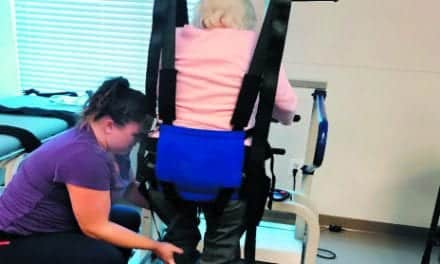.png)
Researchers say that the identification of the molecule in humans may assist in providing a more rapid recovery from stroke and synergy with existing treatments, including physical therapy. A recent news release also reports that the researchers developed a new tissue bioengineering approach for delivering drugs to the brain following stroke using a biopolymer hydrogel. Researchers note that they used the biopolymer hydrogel to release neural repair molecules directly to the target region for recovery in stroke.
Researchers also emphasize that more behavioral activity following stroke translates into the stimulation of more connections in the injured brain.
The research paper appears in the journal PNAS.
Source: UCLA




